Posted on 3/28/2025
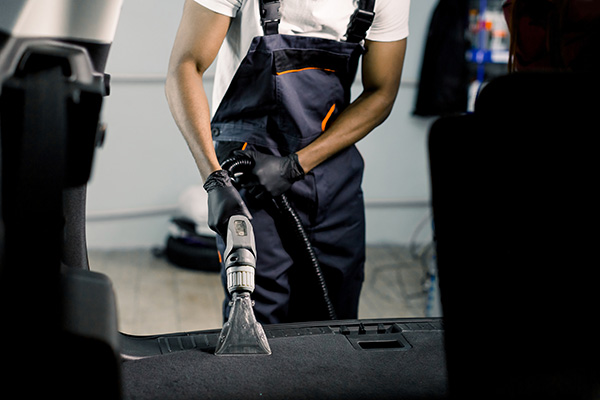
If you open your trunk and find the carpet soaked after a rainy day, that’s more than just an inconvenience—it’s a sign that water is getting into your car where it shouldn’t be. A wet trunk doesn’t just ruin whatever you’re storing back there. Over time, it can lead to mold, mildew, and corrosion that damages your vehicle’s structure and electrical components. Water intrusion in the trunk area is surprisingly common, especially in older vehicles or those that have been through body repairs. The good news is that most leaks can be tracked down and fixed without major work—if you know where to look. Where the Water Is Coming From One of the most common sources of trunk leaks is a worn or damaged trunk seal. This rubber gasket surrounds the edge of the trunk and is designed to keep water out, but age, heat, and pressure can cause it to crack, flatten, or come loose. Another culprit? Tail light assembli ... read more
Posted on 2/28/2025
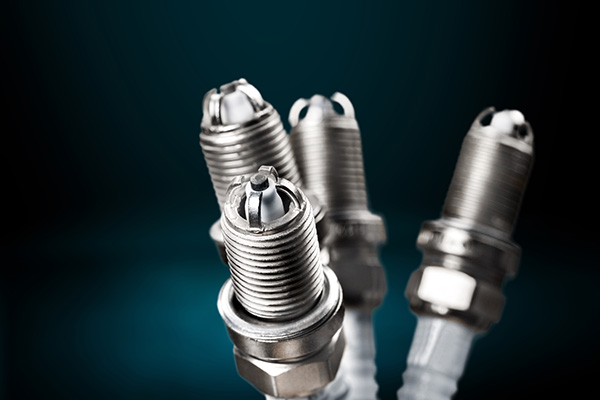
Spark plugs may be small, but they have a big impact on engine performance. They create the spark that ignites the air-fuel mixture, powering your vehicle. Over time, worn-out spark plugs can lead to rough idling, poor fuel efficiency, sluggish acceleration, and even difficulty starting your car. Replacing them at the right time can prevent engine problems and keep your vehicle running at its best. What Do Spark Plugs Do Each time you start your car, the spark plugs generate a high-voltage spark to ignite the fuel inside the combustion chamber. This controlled explosion powers the engine, creating the energy needed to move your car. A properly functioning spark plug ensures efficient fuel combustion, smooth engine performance, and optimal fuel economy. Signs Your Spark Plugs Need to Be Replaced While spark plugs can last anywhere from 30,000 to 100,000 miles, depending on the type and manufacturer recommendations ... read more
Posted on 1/31/2025
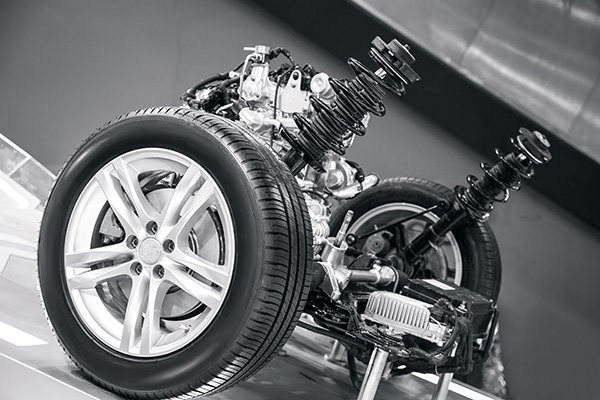
BMWs are known for their precision handling and smooth ride, but like any vehicle, their suspension systems wear down over time. The suspension system in a BMW is responsible for keeping the ride comfortable, absorbing road imperfections, and ensuring stable handling. When something goes wrong, you’ll likely notice changes in the way your vehicle feels on the road. Ignoring suspension issues can lead to more serious damage and affect the overall performance of your BMW. Whether it’s excessive bouncing, uneven tire wear, or a drifting sensation while driving, these signs should never be ignored. Let’s take a closer look at some of the most common symptoms of suspension problems in BMW vehicles. Unusual Bouncing and Poor Ride Quality One of the first signs of suspension trouble is a change in ride quality. If your BMW feels excessively bouncy or unstable, it could mean that your shocks or struts are worn out. The suspension system i ... read more
Posted on 12/21/2024

When winter hits and the roads are covered in snow and ice, having the right vehicle can make all the difference. Whether you're navigating icy streets in Allston or Boston, MA, or heading out on a weekend ski trip to the mountains, Subaru has built a reputation as the go-to brand for winter driving. But what exactly sets Subaru apart when the temperatures drop? Let’s find out why this brand has become a favorite for cold-weather enthusiasts. 1. Subaru’s Symmetrical All-Wheel Drive System One of the standout features that makes Subaru such a winter warrior is its symmetrical all-wheel drive (AWD) system. Unlike other systems that only activate when traction is lost, Subaru’s AWD is always engaged. This constant power distribution ensures a balanced and steady grip on slippery surfaces, whether you’re dealing with slushy streets or packed snow. For drivers in areas like Allston, where winter weather can be unpredictable, t ... read more
Posted on 11/29/2024
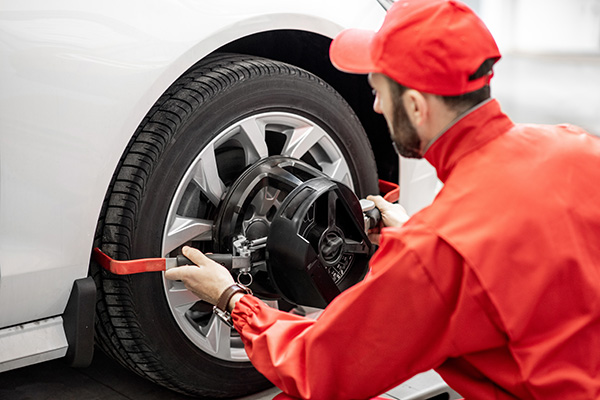
Ever notice your car pulling to one side or a weird vibration in the steering wheel? These could be signs your wheels are out of alignment. But how does this happen? Wheel alignment issues don’t just come out of nowhere; they’re caused by everyday wear and tear or specific incidents that knock things out of place. Misaligned wheels can lead to uneven tire wear, poor handling, and even safety risks, so understanding the causes is important. Everyday Driving Hazards The roads we drive on aren’t perfect. Potholes, curbs, and rough patches are all too common and can wreak havoc on your car’s alignment. Hitting a pothole at high speed can jolt the suspension system, shifting the angles of the wheels. It might not seem like a big deal at first, but even a small misalignment can worsen over time. Similarly, accidentally bumping into curbs while parking or making sharp turns can nudge the wheels out of place. Even driving over spee ... read more
Posted on 10/31/2024
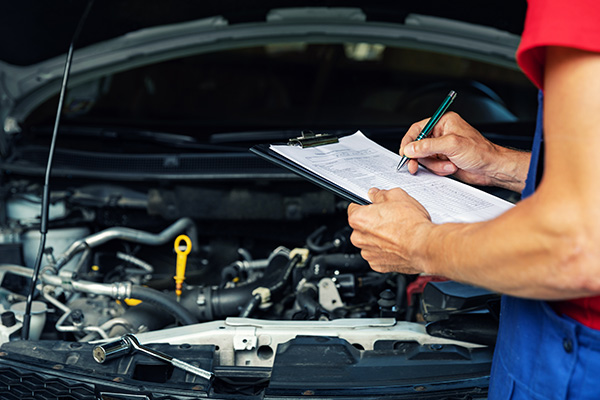
Buying a car is a significant decision. With so many choices and variables to consider, it’s easy to get caught up in the excitement of purchasing your dream vehicle. However, there’s one step you shouldn’t overlook—a pre-purchase inspection. This simple but thorough examination can save you from potential headaches and financial loss in the future. But why is a pre-purchase inspection a smart investment? What Is a Pre-Purchase Inspection A pre-purchase inspection (PPI) is a comprehensive check performed by a professional technician to assess the condition of a vehicle before the purchase is finalized. The technician will carefully examine all the key components, including the engine, transmission, brakes, suspension, and electrical systems, as well as the exterior and interior condition of the car. This inspection helps identify any underlying issues or future repair needs that might not be visible during a casual test drive ... read more
Posted on 9/30/2024

Mercedes-Benz is renowned for producing high-performance luxury vehicles, offering unparalleled comfort and innovative engineering. However, even these well-crafted machines can face their fair share of issues over time. While they are often reliable, Mercedes-Benz models can develop some common problems that owners should be aware of. Whether you're driving a sedan, SUV, or sports model, knowing what potential issues could arise and how to address them is always useful. Let's explore the six most common issues that Mercedes-Benz vehicles tend to experience. 1. Transmission Problems One of the more frequent issues Mercedes-Benz owners report is trouble with the transmission. These problems can range from hard shifting between gears to a complete transmission failure. In automatic models, drivers sometimes notice that their car is struggling to shift gears or slips out of gear entirely, which can be a serious concern while driving. This prob ... read more
Posted on 8/27/2024

Owning a Mercedes-Benz means you value luxury, performance, and engineering excellence. However, to maintain that level of quality, your vehicle requires routine maintenance. You’ve likely come across the terms "Service A" and "Service B," two essential maintenance packages offered for Mercedes-Benz vehicles. But what do these services entail, and how do they differ? Mercedes-Benz Maintenance Mercedes-Benz vehicles are designed with advanced technology that alerts you when it’s time for regular maintenance. These services, known as Service A and Service B, are part of the brand’s Flexible Service System (FSS), which calculates the timing of maintenance based on driving habits and conditions. But while both Service A and Service B focus on keeping your car running in top shape, they serve different purposes and are scheduled at different intervals. Let’s break down the specific components of each service ... read more
Posted on 7/29/2024
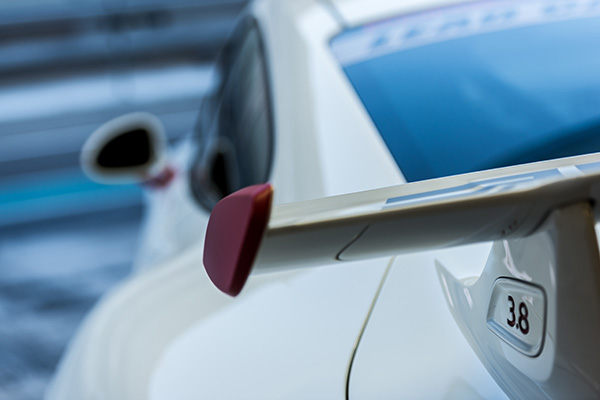
Owning a Porsche is a dream for many car enthusiasts, thanks to its exceptional performance and engineering. However, like any high-performance vehicle, Porsches are not immune to certain mechanical issues, with oil leaks being one of the most common. Understanding what causes these leaks and how to prevent them can help you keep your Porsche in peak condition. The Common Causes of Oil Leaks Oil leaks in Porsches can stem from several sources, often related to the vehicle's complex engineering and high-performance demands. One primary cause is the failure of oil seals and gaskets. Over time, these components can deteriorate due to heat, pressure, and age, leading to leaks. For example, the valve cover gaskets, camshaft seals, and crankshaft seals are particularly susceptible to wear and tear. Oil leaks can also arise from faulty oil lines or con ... read more
Posted on 6/28/2024

Owning a European car is often seen as a mark of prestige and performance. These vehicles are renowned for their engineering excellence, sleek design, and cutting-edge technology. However, regular and specific maintenance is crucial to keep your European car running at its best. Whether you drive a BMW, Audi, Mercedes-Benz, or any other European brand, understanding their unique maintenance needs will help you preserve their performance and longevity. Essential Maintenance Tasks for European CarsOil Changes and Fluid Checks Regular oil changes are fundamental for maintaining engine health. European cars often require specific types of oil and fluids that meet the manufacturer's standards. Using the wrong oil can damage the engine and affect performance. Typically, oil changes should be done every 5,000 to 10,000 miles, but always refer to your owner's manual for the recommended interval. Regularly check and top up other flu ... read more